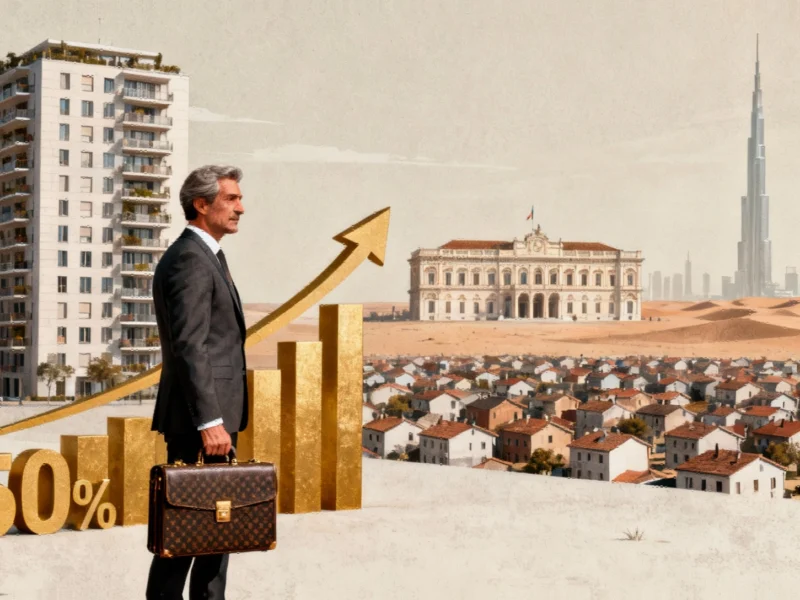Italy’s Evolving Tax Landscape for Global High-Net-Worth Residents
The Italian government under Prime Minister Giorgia Meloni is proposing a significant 50% increase in the flat tax rate for wealthy foreign residents, elevating the annual payment from €200,000 to €300,000. This substantial adjustment, included in Italy’s draft 2026 budget legislation, represents a strategic recalibration of the country’s approach to attracting global capital while addressing domestic economic concerns.
From Tax Haven to Balanced Approach
Over the past decade, Italy has emerged as a premier destination for the world’s ultra-wealthy, with Milan particularly benefiting from an influx of high-net-worth individuals drawn by the country’s renowned quality of life and favorable tax regime. The current system allows qualifying individuals to pay a fixed annual amount on all foreign income and assets while enjoying inheritance tax exemptions on overseas holdings.
However, this approach has generated increasing controversy among local populations, especially in Milan where residents attribute rising property prices and housing shortages to the influx of wealthy foreigners. The government’s proposed changes reflect a broader balancing act between maintaining international competitiveness and addressing domestic socioeconomic pressures.
Comparative Global Landscape for Wealthy Residents
While Italy recalibrates its approach, other jurisdictions continue to attract wealthy global citizens through varied tax frameworks. The United Arab Emirates maintains its position as a top destination by levying no personal income taxes, attracting figures like Revolut co-founder Nik Storonsky who recently established residency there.
Monaco and Switzerland remain perennial favorites among the super-rich, though each offers distinct advantages. Switzerland, while being one of only three European countries implementing a net wealth tax, allows wealthy foreigners to negotiate customized tax arrangements with cantonal authorities, creating flexibility in their overall tax burden.
Broader Economic Context and Industry Implications
The proposed tax increase occurs alongside other significant industry developments in global markets. As governments worldwide reassess fiscal policies, the technology sector continues to evolve with companies exploring new market strategies and operational approaches.
Recent related innovations in environmental technology demonstrate how public and private sectors are addressing contemporary challenges through technological solutions. Similarly, automotive manufacturing faces pivotal moments as seen in recent technology and production decisions that impact global trade relationships.
Political and Social Dimensions
The Meloni government’s proposal marks the second increase to the flat tax regime within two years, following last year’s doubling of the rate to €200,000 for new arrivals. This progressive tightening suggests a deliberate policy shift rather than isolated fiscal adjustments.
Simultaneously, the government plans to reduce taxes for lower and middle-income workers, indicating a comprehensive approach to tax reform that addresses both inequality concerns and revenue generation. This dual-track strategy reflects broader European trends where governments seek to balance competitiveness with social equity.
Future Implications and Market Response
The potential impact of Italy’s tax changes extends beyond immediate revenue implications. As detailed in this comprehensive analysis, the decision could influence how other European nations structure their own residency programs for wealthy individuals.
Financial technology sectors and global mobility patterns may see shifts as wealthy individuals reassess their options. Current market trends in consumer technology and corporate strategy demonstrate how companies are adapting to changing regulatory environments and consumer expectations.
Meanwhile, broader economic uncertainties continue to shape investment decisions, as evidenced by industry developments in capital markets and public offerings that reflect the complex interplay between government policy and private sector activity.
Conclusion: A New Chapter in Global Tax Competition
Italy’s proposed tax increase represents a significant moment in the ongoing evolution of global tax competition for wealthy individuals. As nations increasingly scrutinize the balance between attracting foreign capital and maintaining social cohesion, the Italian model offers a case study in gradual policy adjustment rather than abrupt reversal.
The final parliamentary decision on the 2026 budget will determine whether Italy maintains its competitive edge while addressing domestic concerns about housing affordability and economic inequality. The outcome will undoubtedly influence how other nations approach their own residency and tax programs for the global elite.
This article aggregates information from publicly available sources. All trademarks and copyrights belong to their respective owners.



